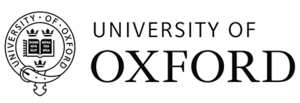University of Oxford - The Spatial Ecology & Epidemiology Group, UK
The Spatial Ecology & Epidemiology Group (SEEG), originally founded by Prof. David Rogers and then led by Prof. Simon Hay, has a long history of investigating spatial variation in vector-borne diseases and mapping their vectors, including arbovirus and malaria vectors. SEEG used species distribution modelling techniques to estimate geographical variation in Ae. albopictus and Ae. aegypti as well as modelling the impact of temperature on persistence of these species. This work was part of the group’s wider spatial modelling activities involving a team of 15 epidemiologists, entomologists, geographers, mathematicians and statisticians with access to high performance computing facilities.
Work on insecticide resistance is coordinated by Dr Catherine Moyes who has established a new project to characterise spatiotemporal variation in insecticide resistance, initially in malaria vectors but expanding to other disease vectors. The geostatistical techniques used in this work will incorporate spatial dependence seen in patterns of resistance as well as potential risk factors such as interventions (e.g. spraying campaigns), agricultural use of insecticides, and environmental factors, to estimate resistance in all regions and identify the factors linked to arising resistance. SEEG’s flagship project, the Malaria Atlas Project, formed the basis of a WHO Collaborating Centre in Geospatial Disease Modelling led by Prof. Peter Gething who is also a partner in the work on geograpical variation in insecticide resistance. Dr Moyes has provided the initial data on insecticide resistance to the WHO Global Malaria Programme (GMP) and provides regular updates to GMP.






